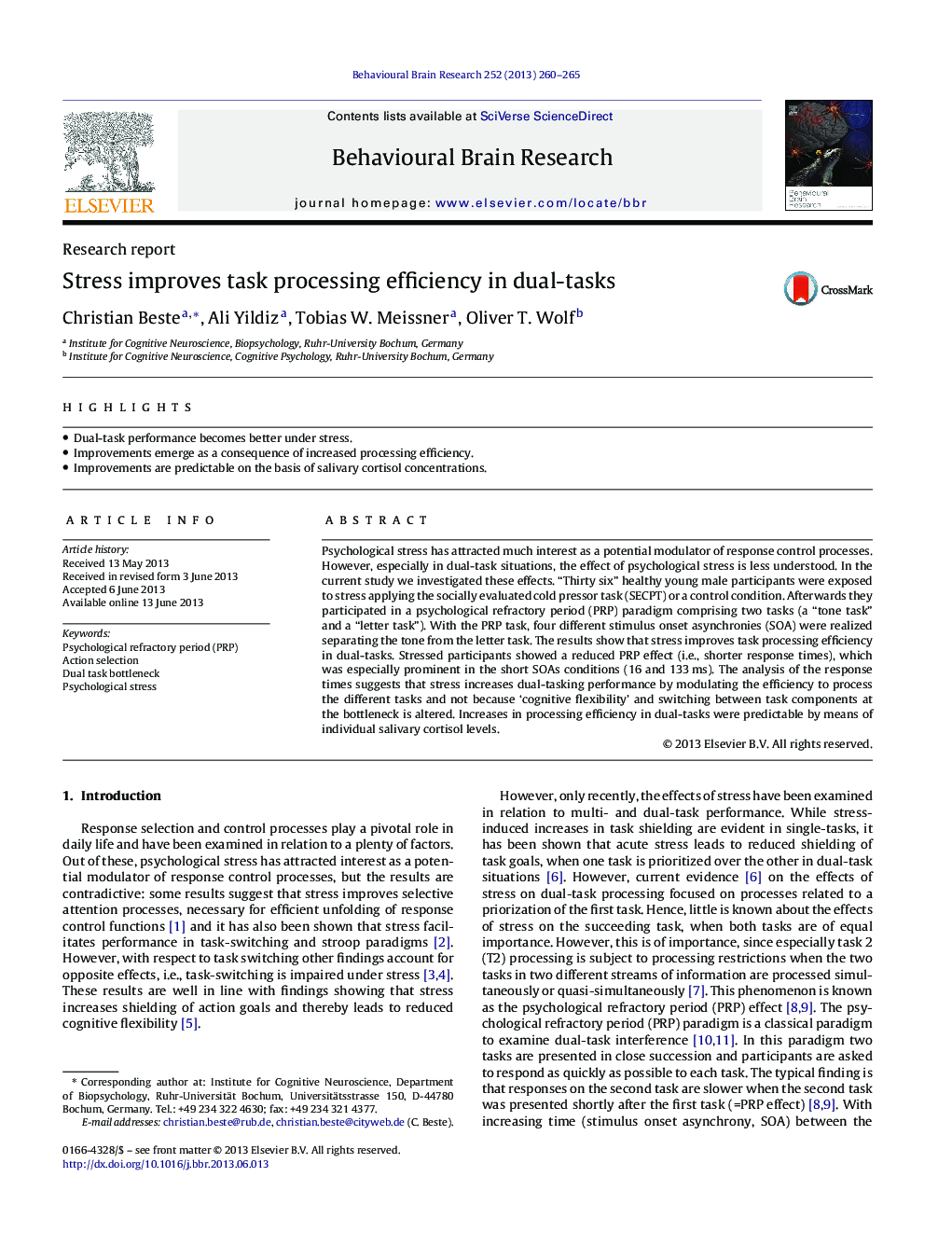| کد مقاله | کد نشریه | سال انتشار | مقاله انگلیسی | نسخه تمام متن |
|---|---|---|---|---|
| 4312615 | 1612980 | 2013 | 6 صفحه PDF | دانلود رایگان |

• Dual-task performance becomes better under stress.
• Improvements emerge as a consequence of increased processing efficiency.
• Improvements are predictable on the basis of salivary cortisol concentrations.
Psychological stress has attracted much interest as a potential modulator of response control processes. However, especially in dual-task situations, the effect of psychological stress is less understood. In the current study we investigated these effects. “Thirty six” healthy young male participants were exposed to stress applying the socially evaluated cold pressor task (SECPT) or a control condition. Afterwards they participated in a psychological refractory period (PRP) paradigm comprising two tasks (a “tone task” and a “letter task”). With the PRP task, four different stimulus onset asynchronies (SOA) were realized separating the tone from the letter task. The results show that stress improves task processing efficiency in dual-tasks. Stressed participants showed a reduced PRP effect (i.e., shorter response times), which was especially prominent in the short SOAs conditions (16 and 133 ms). The analysis of the response times suggests that stress increases dual-tasking performance by modulating the efficiency to process the different tasks and not because ‘cognitive flexibility’ and switching between task components at the bottleneck is altered. Increases in processing efficiency in dual-tasks were predictable by means of individual salivary cortisol levels.
Journal: Behavioural Brain Research - Volume 252, 1 September 2013, Pages 260–265